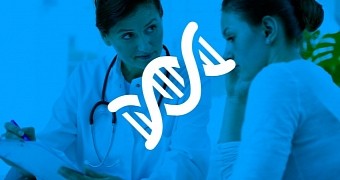Previous reports have pointed the finger at the healthcare sector as being woefully unprepared for the modern age of Internet-enabled devices that are always online and present a constant danger to the patient, hospital, and insurer data.
This lack of security measures comes from the fact that, for many years, both the hardware and software part of healthcare applications couldn't handle the amount of data doctors and researchers needed, so no industry standards were put in place to protect sensitive data of any form.
Now, as technology has evolved, the healthcare sector is trying to catch up from behind with other industries, but the previous years, when it did not make a habit from protecting data, left a big hole to fill.
While many healthcare providers and medical research companies are putting more effort into catching up with modern-day security practices, there's still a lot of work to be done, which requires both time and financial resources to adapt various security tools to the medical industry.
Microsoft will provide a free tool to help with biomedical data processing and encryption
In a recent paper released on its research portal, Microsoft has announced a new encryption library that implements the theory of homomorphic encryption.
Homomorphic encryption is a method of encryption that encodes data in such a way that it allows developers to work with the encrypted data as if it were in unencrypted form. Operations ran on homomorphically encrypted data yield the same results as when run on the data's cleartext version.
Microsoft's new library, named SEAL (Simple Encrypted Arithmetic Library), is modeled after homomorphic encryption principles, and allows developers to carry out addition and multiplication operations on the encrypted data.
For now, the Redmond company says that SEAL can only handle genomic data used in bioinformatics.
"SEAL is a general-purpose homomorphic encryption library and can be the basis for research and experiments in many different areas," a Microsoft spokesperson informed Softpedia. "For the purposes of this paper, our researchers have chosen the bioinformatics sector as an example application because we think that the health sector is one of the areas that might benefit the most from this technology."
"The paper aims to introduce homomorphic encryption to the bioinformatics community since it might not be well-known in that community. However, the code samples and description of the library in the paper mainly present general functionality, not specific to bioinformatics or genomics, and can be used for other purposes as well," Microsoft also explained.
Using SEAL in real-world scenarios would allow hospitals and researchers to host encrypted data in the cloud, and avoid investing in their own data storage systems, while also being able to work with the data in the encrypted format, without wasting time decrypting it and re-encrypting it afterward.
The new SEAL library will be provided as a downloadable tool, which will be made available in the upcoming months under a non-commercial license for experimentation and research purposes. In the meantime, you can check out Microsoft's Manual for Using Homomorphic Encryption for Bioinformatics.
UPDATE: We have corrected and updated the article with details received from a Microsoft spokesperson.

 14 DAY TRIAL //
14 DAY TRIAL //